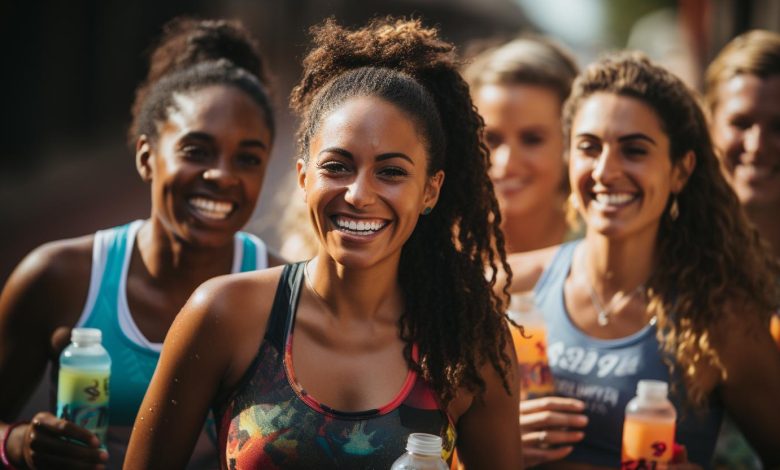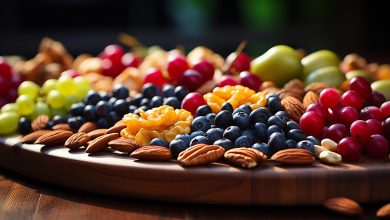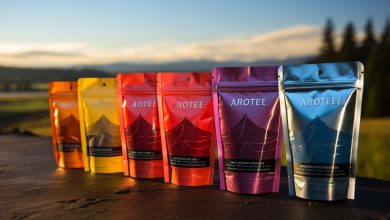The Pros and Cons of Different Sports Drinks for Runners

Are you ready to fuel your runs with the perfect sports drink? Look no further than this article, where we’ll dive into the pros and cons of different options available to runners.
From boosting hydration and replenishing electrolytes to potential side effects and sugar content, we’ve got you covered.
So, lace up your shoes and join us as we explore the best choices for maximizing performance and recovery on your running journey.
Health Benefits of Sports Drinks for Runners

You should know that sports drinks can provide you with important health benefits as a runner. When it comes to hydration strategies, sports drinks are specifically designed to replenish the fluids and electrolytes lost during intense physical activity. Staying properly hydrated is crucial for maintaining your performance and preventing dehydration-related issues such as fatigue, muscle cramps, and dizziness.
Sports drinks contain a combination of water, carbohydrates, and electrolytes like sodium and potassium. These ingredients work together to keep you hydrated by replacing the fluids and minerals lost through sweat. Additionally, the carbohydrates in sports drinks provide an energy source that can enhance your performance during long runs or intense workouts.
Research has shown that consuming sports drinks during exercise can improve endurance and delay fatigue. The carbohydrates in these drinks serve as fuel for your working muscles, allowing you to maintain a steady pace for longer periods of time. Furthermore, the electrolytes help regulate fluid balance in your body, ensuring optimal function of your muscles and nerves.
To make the most out of sports drinks as a runner, it’s important to choose one that matches your individual needs. Consider factors such as flavor preference, carbohydrate content, and tolerance for certain ingredients when selecting a sports drink. Experimenting with different brands or flavors can help you find the one that works best for you.
Potential Side Effects of Sports Drinks for Runners

One potential side effect of using sports drinks for running is an increase in sugar intake. While these beverages can provide hydration and replenish electrolytes lost through sweat, it’s important to be mindful of the amount of sugar they contain. High levels of sugar can lead to dehydration risks during exercise, as excess sugar consumption can cause an increase in urine output.
To avoid this potential side effect and optimize your performance, consider the following:
1. Read the labels: Check the nutrition facts panel to determine the amount of sugar present in a sports drink. Look for options with lower sugar content or choose those labeled as ‘low-sugar’ or ‘sugar-free.’
2. Dilute if necessary: If you prefer a certain sports drink but find its sugar content too high, try diluting it with water to reduce your overall intake.
3. Consider alternatives: Instead of relying solely on sports drinks, explore other hydration options like coconut water or homemade electrolyte drinks that allow you to control the amount of added sugars.
By being aware of your sugar intake from sports drinks and making informed choices, you can minimize any negative impact on your performance and decrease the risk of dehydration.
Now let’s dive into a comparison of electrolyte content in different sports drinks…
Comparison of Electrolyte Content in Different Sports Drinks

Take a look at the electrolyte content in various sports beverages to see how they compare. Electrolytes are essential for maintaining proper hydration levels and can have a significant impact on performance during physical activity. To help you make an informed decision, here is a comparison of the electrolyte content in four popular sports drinks:
| Sports Drink | Sodium (mg) | Potassium (mg) | Magnesium (mg) | Calcium (mg) |
|---|---|---|---|---|
| Gatorade | 110 | 30 | 0 | 6 |
| Powerade | 150 | 35 | 0 | 6 |
| Pedialyte | 370 | 280 | 20 | – |
| Coconut Water | 40 | 660 | 25 | – |
From the table above, it’s clear that Pedialyte has the highest sodium and potassium content compared to other sports drinks. This makes it an excellent choice for replenishing electrolytes after intense workouts or prolonged exercise sessions. On the other hand, coconut water stands out with its high potassium levels, which can help prevent muscle cramps.
When considering your hydration needs and performance goals, remember that consuming adequate amounts of electrolytes is crucial. It’s important to choose a sports drink that aligns with your specific requirements and preferences.
Sugar Content in Sports Drinks: What Runners Need to Know

When it comes to sugar content, it’s essential for runners to be aware of the levels in their sports beverages. The amount of sugar in these drinks can have a significant impact on your performance and overall health.
Here are three key things you need to know about sugar alternatives and their impact on your performance:
1. Choose low-sugar options: Look for sports drinks that contain minimal added sugars or opt for sugar-free versions. Excessive sugar intake can lead to energy crashes and hinder your endurance during long runs.
2. Consider natural sweeteners: Some sports drinks use natural sweeteners like stevia or monk fruit extract instead of artificial sugars. These alternatives provide a sweet taste without the negative effects associated with excessive sugar consumption.
3. Moderation is key: While some sugar in your sports drink can provide a quick energy boost, it’s important not to rely solely on sugary beverages for fueling your runs. Balancing your carbohydrate intake from other sources, such as whole foods and gels, is crucial for maintaining stable blood sugar levels and optimizing performance.
Considerations for Choosing the Right Sports Drink for Your Run

It’s important for athletes to carefully consider the sugar content in their chosen sports beverages. While hydration is crucial for performance enhancement during a run, consuming excessive amounts of sugary drinks can have negative effects on your health and performance. When choosing the right sports drink for your run, it’s essential to look for options that provide optimal hydration without overloading you with unnecessary sugars.
To help you make an informed decision, here’s a comparison table of popular sports drinks:
| Sports Drink | Sugar Content (g) | Electrolytes |
| Brand A | 25 | Yes |
| Brand B | 35 | No |
| Brand C | 15 | Yes |
As you can see from the table above, different brands offer varying levels of sugar content and electrolyte composition. It is generally recommended to choose a sports drink with lower sugar content and adequate electrolytes to replenish what is lost through sweat.
In terms of hydration strategies, it’s important to remember that water should be your primary source of hydration throughout the day. During longer runs or intense workouts lasting over an hour, incorporating sports drinks can help maintain electrolyte balance and enhance performance.
Conclusion
In conclusion, when it comes to choosing the right sports drink for your running needs, it’s important to weigh the pros and cons.
While sports drinks can provide health benefits like replenishing electrolytes and improving hydration, they also come with potential side effects such as digestive issues.
It’s crucial to compare different options based on their electrolyte content and sugar levels.
By considering these factors, you can make an informed decision that will support your running performance and overall well-being.
Stay hydrated, stay strong!






